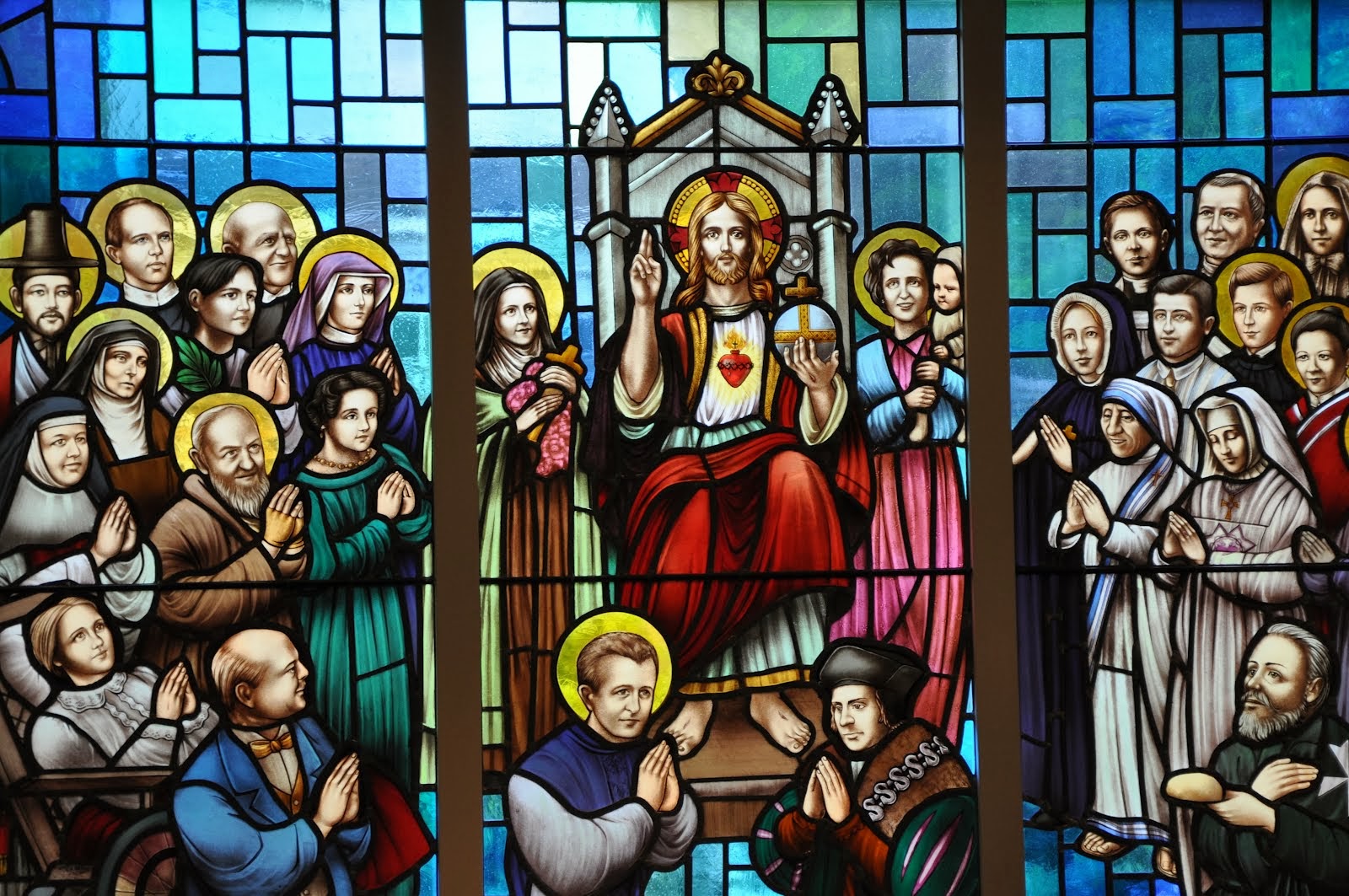
“What is this great mystery about you, O holy Mother and Virgin?…You are the royal throne, around which angels stand to see their Lord and Creator seated upon it. You are called the spiritual Eden…for in the former Eden the earthly Adam dwelt, but in you the Lord from Heaven.” St. John of Damascus (7th-8th centuries, Doctor of the Church)
“Our great Queen has gone on before us…Our exiled race has sent home an advocate, who, being the Mother of the Judge and also the Mother of mercy, will be sure to advance the cause of our salvation, humbly, indeed, yet not less efficaciously.” St. Bernard of Clairvaux (11th-12th centuries, Doctor of the Church)
“Mary is the most sweet bait, chosen, prepared, and ordained by God, to catch the hearts of men.” St. Catherine of Siena (14th century, Doctor of the Church)
“Even as Mary conceived and will eternally bear her Son Jesus Christ in her heart, she also conceives and holds forever in the same heart all the holy members of our divine Head. They are her beloved children, the fruits of her maternal heart, and she offers them to the divine majesty as a perpetual sacrifice.” St. John Eudes (17th century)
“The Father takes pleasure in looking upon the heart of the most holy Virgin Mary, as the masterpiece of His hands…The Son takes pleasure in it as the heart of His Mother, the source from which He drew the blood that has ransomed us.” St. John Vianney (18th-19th centuries)
“The great mission of Mary is to form Jesus in us.” St. Peter Julian Eymard (19th century)
“No one has access to the Almighty as His Mother has.” Bl. John Henry Newman (19th century)
“Jesus in heaven, in the essential brightness of His glory, is seated at the right hand of the Father, but here below His more fitting throne of mercy and grace is in the bosom of the Virgin who holds Him a little Babe in her arms.” Bl. Ildefonso Schuster (19th-20th centuries)
“Among creatures made in God’s image, the union brought about by married love is the most intimate of all. In a much more precise, more interior, more essential manner, the Holy Spirit lives in the soul of the Immaculata, in the very depths of her being. He makes her fruitful from the very instant of her existence, all during her life, and for all eternity.” St. Maximilian Kolbe (19th-20th centuries)
“In that Paradise of Creation there were celebrated the first nuptials of man and woman. But man willed not to have blessings, except according to his lower nature. Not only did he lose his happiness; he even wounded his own mind and will. Then God planned the remaking or redeeming of man. But before doing so, He would make another Garden. This new one would be not of earth but of flesh; it would be a Garden over whose portals the name of sin would never be written – a Garden in which there would grow no weeds of rebellion to choke the growth of the flowers of grace – a Garden from which there would flow four rivers of redemption to the four corners of the earth – a Garden so pure that the Heavenly Father would not blush at sending His own Son into it – and this ‘flesh-girt Paradise to be gardened by the Adam new’ was Our Blessed Mother. As Eden was the Paradise of Creation, Mary is the Paradise of the Incarnation, and in her as a Garden were celebrated the first nuptials of God and man. The closer one gets to fire, the greater the heat; the closer one gets to God, the greater the purity. But since no one was ever closer to God than the woman whose human portals He threw open to walk this earth, then no one could have been more pure than she.” Ven. Fulton Sheen (19th-20th centuries)
“After having yielded up His garments to those who shook dice for them, he on the cross now yields up her who wove the seamless garment. Our Blessed Lord looks down to the two most beloved creatures He has on earth: Mary and John. He speaks first to His Blessed Mother. He does not call her ‘Mother,’ but ’Woman.’ As Saint Bernard so lovingly put it, if He had called her ‘Mother,’ she would have been just His mother and no one else’s. In order to indicate that she is now becoming the mother of all men who He redeems, He endows her with the title of universal motherhood: ‘Woman.’ Then indicating with a gesture of His head the presence of his beloved disciple, He added: ‘Behold thy son.’ He does not call him John, for if He did, John would have been only the son of Zebedee; He left him unnamed that he might stand for all humanity.” Ven. Fulton Sheen
